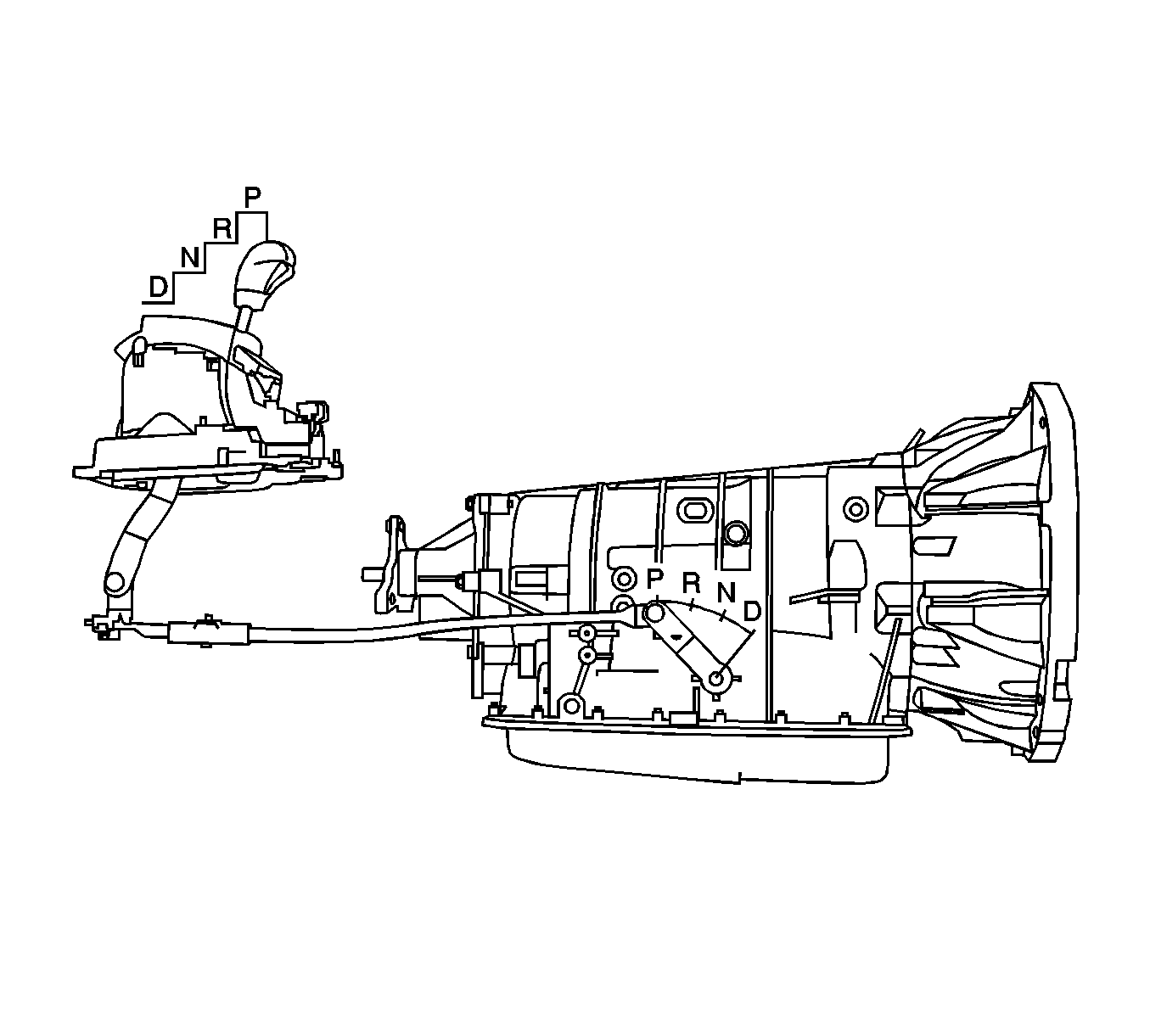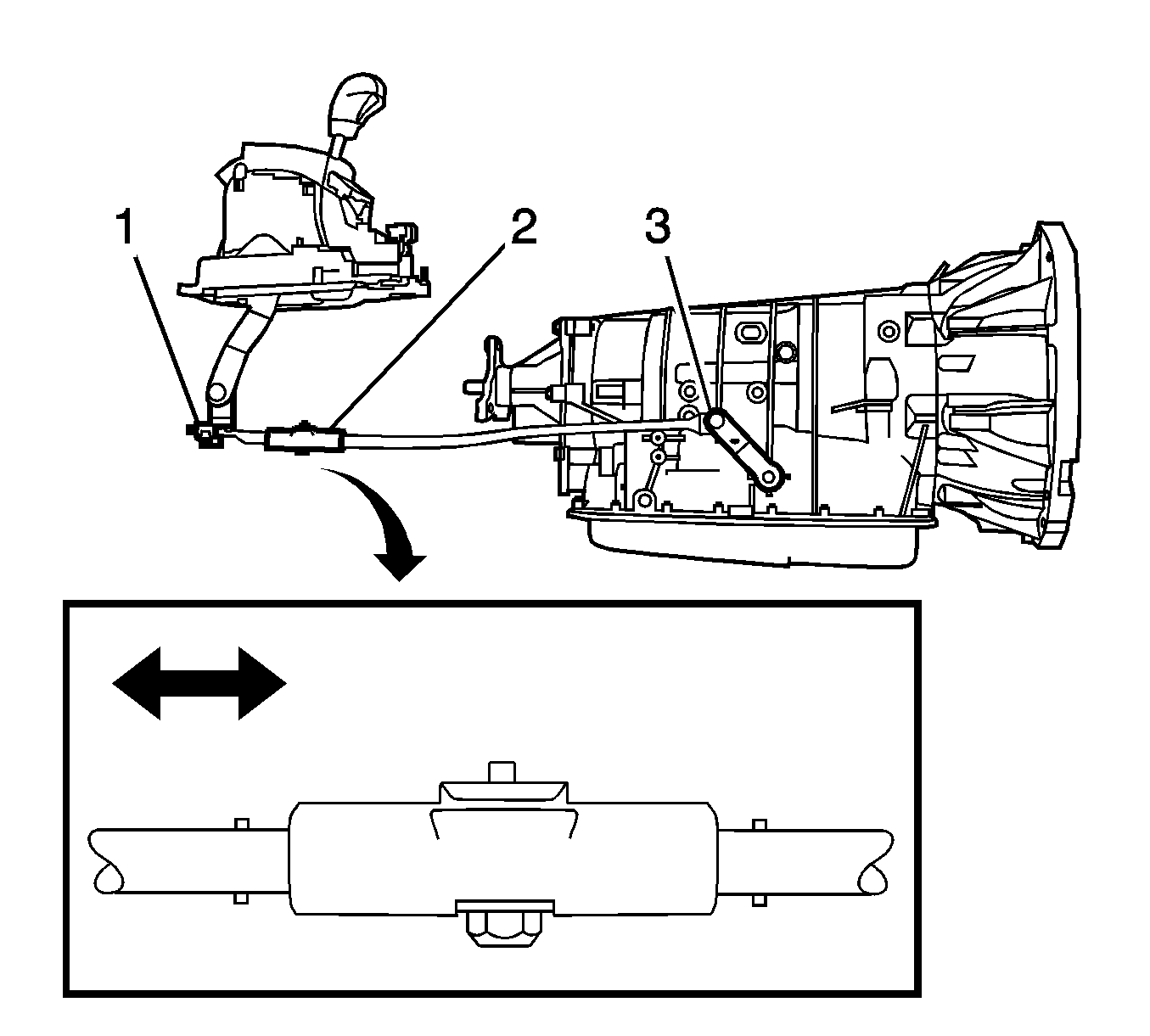
- Position the shift lever in PARK.
- Raise and support the vehicle. Refer to
Lifting and Jacking the Vehicle
.

- Loosen the shift control linkage adjustment nut (2) and allow the linkage to slide freely.
- The linkage will self adjust to the proper position.
- If the linkage fails to self adjust, proceed as follows:
| 5.1. | Hold the selector lever on the transmission (3) against the rear stop in the PARK position to eliminate any play in the forward section of the linkage. |
| 5.2. | Grasp the linkage at the control lever (1). |
| 5.3. | Push the linkage forward and make a note of the amount of travel the rod makes going into the adjustment sleeve. |
| 5.4. | Pull the linkage rearward and make a note of the amount of travel the rod makes coming out of the adjustment sleeve. |
| 5.5. | Place the rod into the adjustment sleeve half the distance of the complete amount of travel. |
Notice: Refer to Fastener Notice in the Preface section.
- Tighten the shift control linkage adjustment nut (2).
Tighten
Tighten the shift control linkage adjustment nut to 9 N·m (80 lb in).
- Lower the vehicle.
- Inspect the operation of the starting system with the shift lever in each position. The engine should only crank when the lever is in the PARK or NEUTRAL position.
- Ensure that the shifter detents align with the gear indicators.
- Return to the PARK position and check for proper engagement. PARK position should feel solid and not spongy. The shift lever should not be bottomed out on the stop bumper when engaging the PARK position. Readjust and retest if necessary.
- With the ignition on and the engine not running, ensure a smooth transition from position D to tap mode and back. Ensure that the odometer changes to the gear indicator mode. If the odometer does not change to gear indicator mode, or any binding
or rough spots are felt, repeat the linkage adjustment procedure and retest the system.


